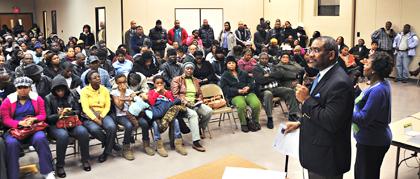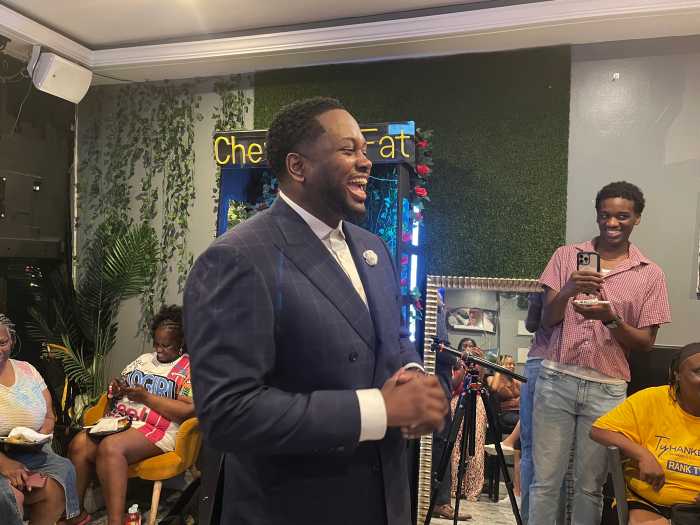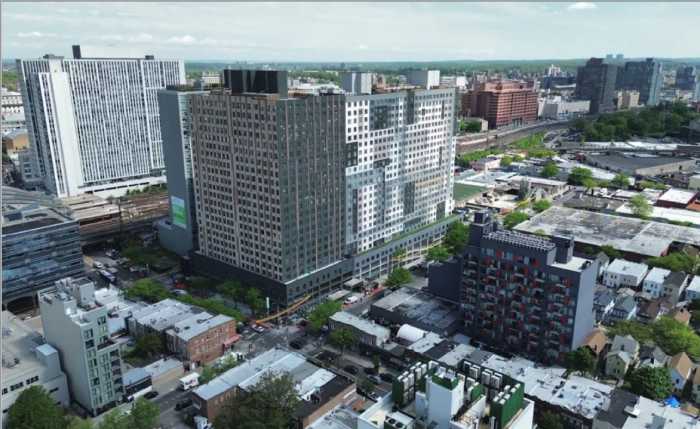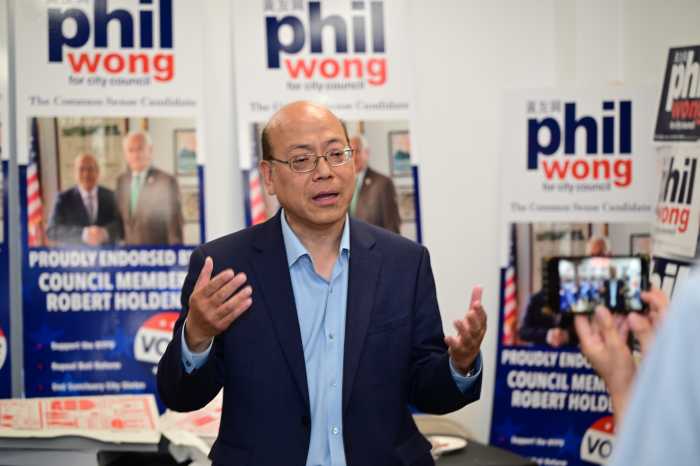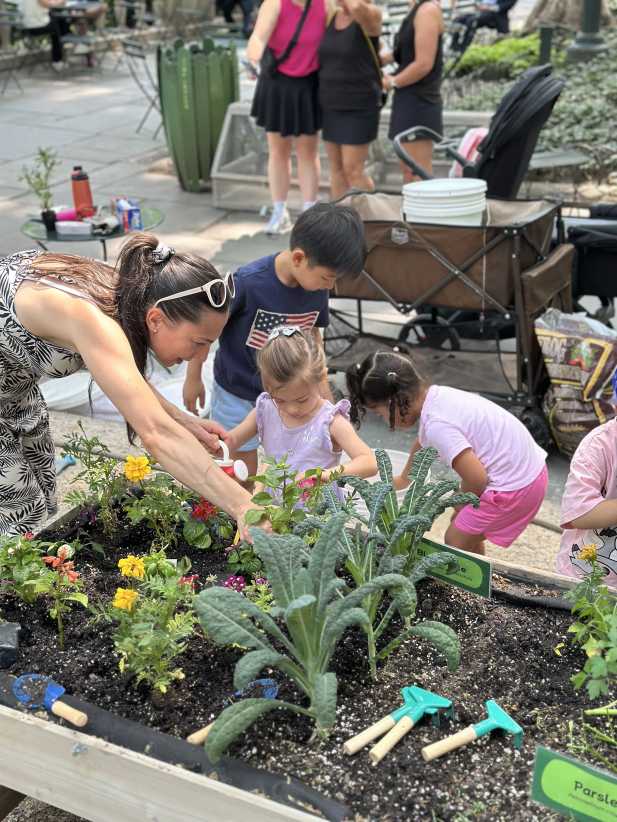By Ivan Pereira
The federal government is lending a hand to Haitian immigrants who need help to remain legally in the United States and U.S. Rep. Gregory Meeks (D-Jamaica) wants to make sure interested people receive assistance with as little hassle as possible.
The congressman organized a special town hall meeting Monday night at the St. Joachim & Anne Church in Queens Village to give interested applicants more information on the government’s Temporary Protected Status for Haitian nationals.
More than 400 people packed the church’s auditorium to find out how they or someone they knew could live and work in the United States legally for 18 months after President Obama announced the change in policy following the earthquake that devastated Haiti Jan. 12.
“I don’t know what the process is and I want to learn more,” said a man named Charles, a Haitian immigrant who has been living in Jamaica illegally for four years. “I don’t want to get deported.”
The TPS is implemented for people living in the United States who hail from nations that experienced natural disasters, Meeks explained. The U.S. Department of Homeland Security announced it would allow selected Haitians who were living either legally or illegally in the United States on Jan. 12 a temporary legal status for 18 months.
“I know the message of the president of the United States is that we will stand behind Haiti,” the congressman said.
Homeland Security District Director Andrea Quarantillo laid out the specifics to applying for the legal status. The applications are only for Haitians who were in America on the day of the earthquake and not for refugees of the disaster.
“If you came after that date, you will not qualify,” Quarantillo said.
The applicant must be “continuously physically present” throughout the period of the TPS and must not have been convicted of a felony or two misdemeanors, according to Homeland Security. Quarantillo said those who are approved would have great benefits, including the ability to legally work in the United States.
“Being here legally and working can help you get a job where an employer can possibly apply for special work visas,” she said.
Meeks and Quarantillo warned the audience to watch out for unscrupulous third parties who will offer help in applying for the program. Some groups may charge extra fees and give wrong information to immigrants, especially those who cannot speak English, according to Meeks.
“People are trying to trick you and give you ridiculous fees,” the congressman said.
Quarantillo advised applicants to call Meeks’ office at 718-725-6000 if they had any more questions on applying and to pick up an application, which can only be filed through regular mail.
For more information on the TPS, log on to www.uscis.gov or call 1-800-375-5283.
Reach reporter Ivan Pereira by e-mail at ipereira@cnglocal.com or by phone at 718-229-0300, Ext. 146.

